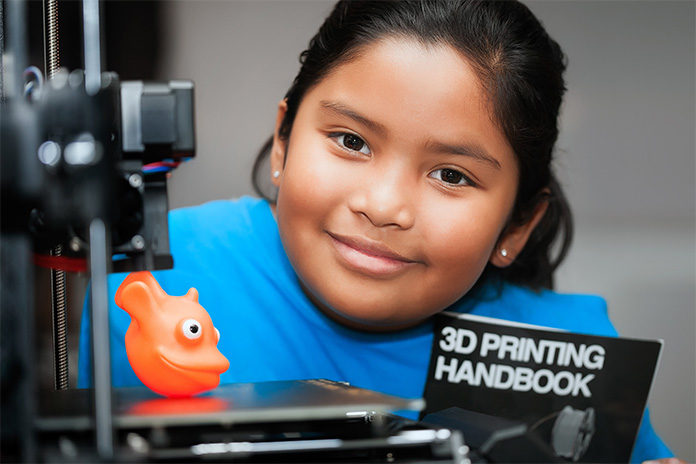STEM is an interdisciplinary and applied approach to educating students in four specific disciplines – science, technology, engineering and mathematics.
The curriculum was developed as a response to waning interest among the general school population. Only about 20 % of those students gravitate toward careers involving those subjects. Yet, according to a STEM3 Academy report, that number is actually 34% among kids diagnosed with autism spectrum disorders.
Children with special needs especially thrive in active, hands-on, problem-solving classroom environments. They have prolific visual discrimination and pattern recognition skills, with a single-minded ability to concentrate for extended periods of time, and successfully engage in repetitive activities. The bottom line is that they are bright, eager to learn, and hard-working.
STEM-based education has built-in “accommodations”. Classes naturally provide the supports that children with special needs require, such as:
- Regular movement – These classes depend on active, hands-on engagement. We often encourage our students to solve real world problems, such as bullying.
- Smart scheduling – Built-in starting and stopping points help students move through the engineering design process. Students are given time to process what they are learning and doing.
- Smaller classes – A well-designed STEM class typically includes teams of 4 to 6 students. The overall number of students is typical but the small group settings are the key to success.
- Safe spaces – This is another reason why bullying arose as a highly relevant topic for our students to explore. STEM classes are safe spaces. Failure is considered a normal step in improving design and succeeding. Team members show respect and accept one another. Teachers monitor the teams as they work. While bullying can be a harsh reality for some students, we have utilized it as an communicative topic to allow students of all levels to utilize the STEM tools to express their feelings, and help them to process and reflect on the important issues of Harassment, Bullying and Intimidation.
We assume competency. If you set the bar high and create an environment that allows them to reach it, students with special needs will learn at higher levels.
We build on their strengths and interests. Our students are comfortable and excited about learning because we use their strong points as leverage.
We use assistive-technology tools. Students with hearing or visual loss benefit the most from this. They are provided with handouts and written materials in a digital format.
We are safety-first. When our students are working with equipment to design devices for solving their problem, we remain on high alert.
We are role models. Persistence, communication, creativity and collaboration are the qualities we attempt to demonstrate for our students. We understand their need for help with social and interpersonal skills.
We establish collaborative student teams. Respect and inclusiveness are non-negotiable. Teammates are taught to honor each other’s strengths and accept one another’s differences. Once again, as social skills are promoted, bullying does not stand a chance.
The Gateway School an private special education school in New Jersey
Our Mission at The Gateway School is to help all of our special needs students with the learning, social, language, and behavioral support they deserve. Our highly skilled staff are committed daily to helping each student to becoming the best they can while providing a safe and nurturing educational environment.
We would be more than happy to discuss your child’s specific needs and challenges, so please call us at 732.541.4400, or request a tour of The Gateway School located in Carteret New Jersey, just minutes off of the New Jersey Turnpike.
Chris Hoye, Principal-The Gateway School of Carteret, NJ
